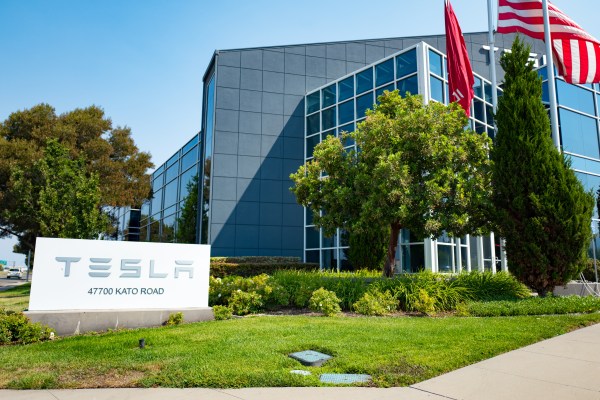Tesla wants to pause a federal agency’s lawsuit against the automaker for racial bias against its Black workers at its Fremont assembly plant.
The electric vehicle maker, in a filing in San Francisco federal court Monday, accused the U.S. Equal Employment Opportunity Commission (EEOC) of rushing to file a lawsuit in September against Tesla as part of a “toxic interagency competition” with a California civil rights agency that sued the automaker for similar reasons last year.
The EEOC’s lawsuit alleges that Tesla violated federal law by tolerating widespread and ongoing racial harassment of its Black employees and subjecting some workers to retaliation for opposing harassment. The EEOC’s filing details accounts from Black workers enduring casual use of slurs and epithets such as variations of the N-word, “monkey,” “boy” and “black bitch,” as well as racist graffiti calling for violence against Black people, among other forms of abuse.
The California Civil Rights Department’s claims against Tesla include similar examples of harassment from Black workers.
Both cases are in state court and claim that Tesla violated California’s anti-discrimination laws. The EEOC’s lawsuit includes a claim that Tesla also broke a federal law banning workplace race discrimination and harassment.
Tesla also faces a proposed class action that alleges racial harassment filed by workers in 2017.
The EEOC did not immediately respond to TechCrunch’s request for comment.
Tesla’s filing on Monday says the federal court should decline to open a third lawsuit until the existing cases are resolved. The automaker’s lawyers argued that prosecuting three cases simultaneously will involve “substantial duplication of effort,” create a risk of “inconsistent court rulings” and waste judicial resources.
Tesla is calling on something referred to as the Colorado River abstention doctrine here, which is a legal principle that would allow a federal court to abstain from hearing a case if there’s a parallel proceeding happening in state court that covers the same issues. The goal behind the doctrine is to avoid duplicate litigation and boost more efficient justice.
The turf war Tesla refers to in its filing is between the EEOC and the California Civil Rights Department (CRD), formerly the Department of Fair Employment and Housing. The filing claims that, historically, the EEOC and CRD have worked together so that entities wouldn’t be subject to the same litigation from the two agencies.
“With each agency increasingly eager to file headline-grabbing complaints and report multimillion dollar settlements, their historical coordination and cooperation collapsed,” the filing states.
Tesla has repeatedly denied wrongdoing in its multiple cases of racial discrimination. In its filing Monday, it refers to the allegations as “false” and accuses the EEOC of “hastily wrap[ping] up its sham pre-suit investigation.”
The company is also appealing a $3.2 million award granted to a Black former contractor at the Fremont plant in a separate race bias lawsuit.
